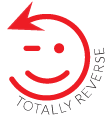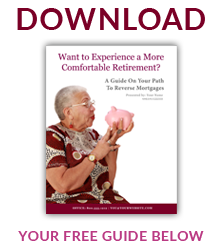Common Questions
Reverse Mortgages for Senior Homeowners
Do not apply for a Reverse Mortgage until you have all the facts, good and not so good. Scroll down to find a list of the most common asked Reverse Mortgage questions.
FREQUENTLY ASKED QUESTIONS ABOUT REVERSE MORTGAGES.
Q. WHAT IS A REVERSE MORTGAGE?
A. It’s a loan available to homeowners age 62+ that allows you to tap into the equity in your home. Essentially, the program allows you to “put your home to work for you.”
Q. WHAT ARE THE PRIMARY ADVANTAGES OF A REVERSE MORTGAGE OVER A CONVENTIONAL LOAN?
A. There are 2 primary advantages:
1. Ease of Qualification…A reverse mortgage is approved on the basis of the age of the applicant and the home’s fulfillment of HUD’s eligibility guidelines. There are also some income and credit qualifications as of August 2015.
2. Flexibility of Repayment…Most people defer all repayment until the last borrower leaves the home; however, a borrower may make a payment at any time and in any amount. If fact, the loan can be repaid in full, at any time without penalty.
Q. WHAT IS THE FUNDAMENTAL FINANCIAL ADVANTAGE OF A REVERSE MORTGAGE?
A. A reverse mortgage is a “positive cash flow” tool. You can improve your “cash flow” by either reducing debt payments, increasing your monthly income, or creating a “bucket of money” (Line of Credit) for emergencies.
Q. WHAT RECENT CHANGES TO THE PROGRAM HAVE MADE IT MORE CONSUMER “FRIENDLY?”
A. There have been 2 fundamental changes in the last 2 years.
1. The introduction of a Fixed Rate program. This adjustment gives the borrower the ability to plan for their future and know exactly what their reverse mortgage pay-off will be for any time in the future. It eliminates the concern of “What happens in a rising interest rate environment, if I have an adjustable rate mortgage?”
2. The introduction of the Lower Cost program. FHA now offers a reverse mortgage that offers a lower upfront Mortgage Insurance Premium if less than 60% of funds are pulled out at closing.
Q. IF I TAKE OUT A REVERSE MORTGAGE, WILL THE BANK OWN MY HOME?
A. No. You continue to own and live in your home. The bank is simply extending a loan to you. Because you continue to be the homeowner, you remain responsible for payment of property taxes, hazard insurance, and keeping the home in reasonable condition.
Q. WHAT IS THE DIFFERENCE BETWEEN A REVERSE MORTGAGE AND A HOME EQUITY LOAN?
A. With a reverse mortgage, there are easier qualifications…with a Home Equity Line of Credit/HELOC…you must prove your ability to repay and there is a specified term (a point in the future when the loan must be repaid in full). With a reverse mortgage, you’re not required to make any repayment as long as one borrower lives in the home.
Q. WHAT IS THE GREATEST FINANCIAL BENEFIT OF THE REVERSE MORTGAGE LINE OF CREDIT?
A. The available balance/unused portion of the reverse mortgage Line of Credit grows tax free “inside” the program. It grows at the same rate that the funds you’ve borrowed are being assessed interest. For example, if you paying 4% interest on borrowed funds…then, your line of credit grows by 4% on your available line of credit balance.
Q. HOW MUCH MONEY CAN I GET?
A. The amount you can borrow depends on several factors, including your age, the type of reverse mortgage you select, current interest rates, the appraised value of your home, and FHA’s maximum claim amount. The older you are, the more money you receive.
Q. WHAT ABOUT THE INTEREST RATE AND FEES?
A. Interest rates for reverse mortgages are tied to a financial index and will vary according to market conditions. Fees/closing costs are tied to the value of your home.
Q. WHAT IF I WANT TO TREAT THIS JUST LIKE A REGULAR MORTGAGE, MAY I MAKE A PAYMENT?
A. Yes. You may always make a payment in any amount at any time.
Q. WHAT HAPPENS WHEN I DIE?
A. When the last borrow passes, the benefit of the reverse mortgage stops. Heirs or beneficiaries may not receive any proceeds from the reverse mortgage. The executor or trustee should notify the lender of their intentions regarding repayment of the reverse mortgage…sell, refinance, or pay-off the loan from other estate funds. It is in the best interest of the estate to finalize the repayment of the reverse mortgage as soon as possible, because interest continues to accrue and add to the repayment balance until the loan is repaid. Generally, as long as the estate is making a good-faith effort to settle the debt, the lender and FHA will be patient. After the reverse mortgage debt is paid, any remaining equity/funds are distributed to the beneficiaries.

